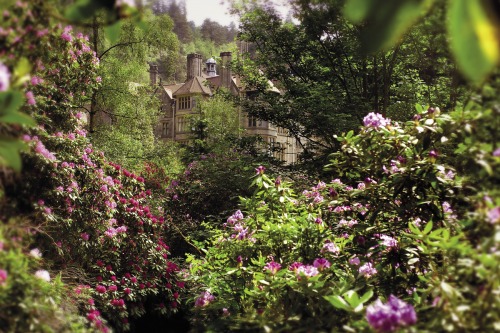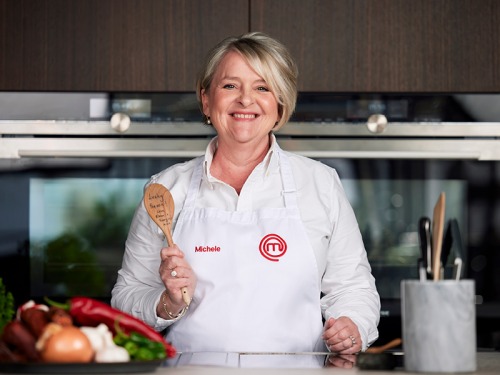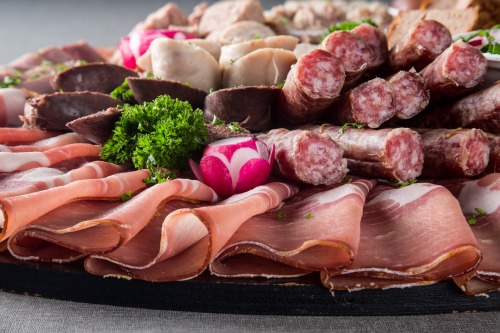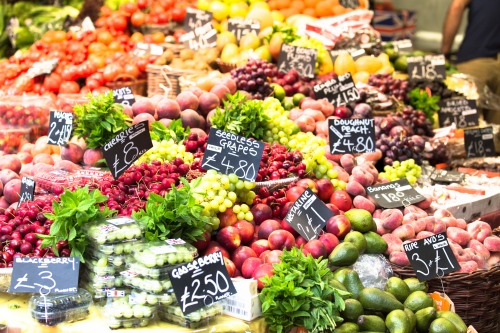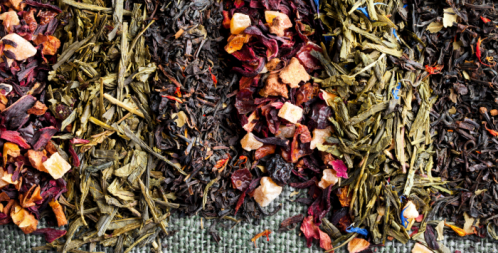Gateshead-born Chef Paul Kitching on Earning a Michelin Star and Keeping it
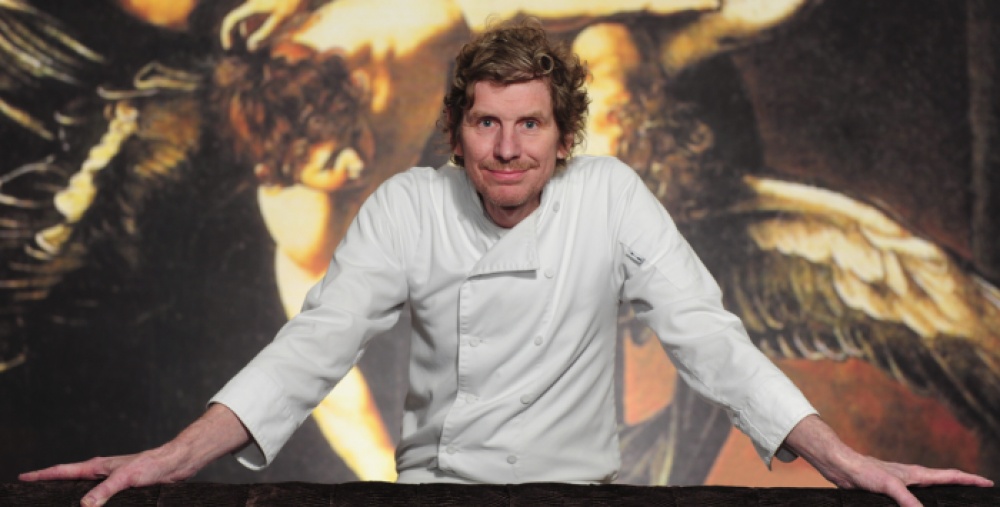
From baker to builder and then to Michelin-star chef, we caught up with Paul Kitching
So you were originally a builder in Gateshead.
Yes. I was a baker first, then a builder. In Dunston, if you know Dunston – Wellington Road, Barry’s Bakery. I was apprentice-commis, that was my very first job leaving school. I absolutely loved it. It was owned by Barry – two Barries. Big Barry was the son, and Barry was the boss. We used to take the van out on a Saturday and drop the cream cakes off. It was an absolutely brilliant job, and I always liked the early mornings, you know.
So they’ve never been a trial for you?
I’ve always taken the Elvis approach: if you’re going to work, do crazy hours. Work into the night. Just be off when everyone else is at work. That’s what appeals about the split shifts here and all the odd hours that chefs do, Christmas Days and odd days. In a bakery it’s like having a paper round: in the mornings, you’re king of the hill, you’re ahead of everyone else, everyone else is in bed, and you’re just making bread. It’s brilliant.
How did you end up on the building site?
The only thing with the bakery was the money was so bad. So my stepfather got me a job as a labourer on a building site in Gateshead on an estate that’s still standing there now 30 years later on Prince Consort Road. The building site was great in the summer, but in the winter it’s a horrible job.
What did you learn there?
What I did notice about the building site, similarly to Barry’s Bakeries, was how important food was to these working men. For their bait, it was sandwiches which their mums made up the night before and wrapped it in greaseproof paper. That was cherished. I used to have to make the teas and coffees and sweep out the hut, and watching these guys open their bait up and they’ve got these flasks and there’s odd little glasses and nips of this and that – which I didn’t understand at the time – and it was just such a celebration.
How did you get back into food?
I went to Jackson Street, where the only job centre was. This was getting toward the winter, it was getting cold, and there was a job for a kitchen porter – actually it said ‘chef’s assistant’. I went, oh wow, chef’s assistant? I saw the lady, she sent me to Newcastle. She actually gave me money out of the till in my hand to go and get the bus; I kept the money and walked and went to see this restaurant in Trinity Square.
On the left hand side was a restaurant called the Latin American Restaurant, it was that one where I went for the interview. I had a look round, didn’t know what I was doing. But they gave me the job, told me I’d start the next day.
It was a horrible job. But it was a funny time for me and I stuck it out. I was primarily a potwash. But the owner’s still got restaurants in Newcastle now – he’s called Franco Parsoneli. Franco was the owner, and Franco’s mum Nancy Parsoneli from Sicily, she was the cook.
Nancy was 68 then, and was quite a formidable Italian lady, but she could cook like there was no tomorrow. This woman had something.
When did you start taking it seriously?
It got to the point where I started to get a little bit of a complex about myself. I had mates who were printers, painters and decorators, actually coming through and doing quite well, moving up, they weren’t apprentices anymore, they were becoming managers.
I wasn’t; I was still Paul the potwash. I went to Newcastle Polytechnic, I did certificates one and two in catering, I got me little badge. I just got a bit embarrassed about it.
What was it like going for your first big interview at the Viking in York?
It was frightening. It was just so shiny, stainless steel, modern, there was steam coming out of one machine. It was like being in a submarine. It was a wonderful May spring morning, beautiful in York.
Before I got the train back I walked a bit round York, and I though, ‘Ah man, this is like the MetroCentre for grown-ups, this is brilliant. It’s made for me.’
I went home and a couple of days later I got a letter back saying, ‘We just think you’re a little under-qualified.’ I was devastated. Devastated. I moped for about six weeks, and then another letter came through from the Viking that said, ‘We now have a position as a commis chef, would you be interested?’
I ran round the corner to the phone box by the laundrette with my 2p in my hand, called up and said, ‘Yes! Yes! Yes!’ Went down for the interview, met the Head Chef who was a guy called Stuart Wayne. Top banana, he was. He gave me the job there and then. The money was bad but I didn’t really care. There was one condition: he said I had to cut my ponytail off.
What did you learn there?
I learned so much about being a chef, not necessarily the cooking; what I did learn there was in the chef’s office they used to have French culinary books, Nouvelle Cuisine and all that stuff. I used to take one home every night and read it, look at the pictures, try out stuff at work.
One day I said to the chef, ‘This book’s really boring, I can’t work it out. What is it? There’s no pictures in it.’ It was the Michelin Guide. Once he explained to me and I’d done some research – in all these French books I was reading, it always mentioned the Michelin Guide, and what it meant to be recognised, and I thought this could be a bit of salvation for me.
This could be me at the top of my class, I could put myself really back on track, become somebody who was good at something, like Nancy was at her job. So I decided to dedicate myself to being a chef after that. It wasn’t a life-changing moment, but the Viking was a life-changing period of time for me.
What’s more stressful: trying to earn a Michelin star, or trying to keep it?
Keeping it. As soon as the Michelin Guide comes out, you’re the best chef in the world. The nearer you get to the new guide coming out, you’ve lost it – you’re the worst chef, you’re rubbish. It’s like waiting for your exam results. It’s the same every year, and God knows why.
Every year you think, ‘For Christ’s sake’; you spend six months being cock of the north, and six months being just a cock. But it’s important, because if you can build a brick wall, you want to build the best wall you can. If you work in McDonald’s, you want to make the best Big Mac. You’ve gotta do the best you can with whatever you do.
When you moved up to Scotland, were you consciously trying to do something different?
Yeah, we did. We threw the baby out with the bathwater. We closed the doors at Juniper and it wasn’t a conscious effort but I knew inside that all that stuff was gone, and I knew when we opened up it was going to be brand new: recipes, ideas, thoughts. And it wasn’t difficult, because there was a subconscious seed planted.
What’s the difference between Northern food culture and Southern food culture?
A big part of it is in Newcastle you get Newcastle chefs. Obviously there’s a lot of guys from Europe – in London it’s a lot more continental, I suppose, and that sort of Cockney dialogue and intellect and humour could be lost a bit.
But on the streets of Newcastle, and Liverpool, and Glasgow, where you’ve got Scouse and Scots and Geordie chefs, it’s different. I’ve never thought about it before and it’s just struck me: Kenny Atkinson will work in a kitchen full of Geordie Michelin-starred chefs, and I’ve never experienced that. It must be a great thing – ‘Where’s the caviar, man? Have ye got the veal stock, bonny lad?’
www.21212restaurant.co.uk






